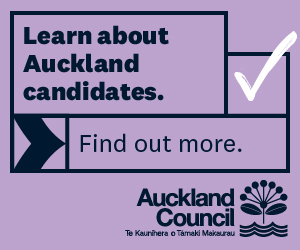
Waitākere Ranges Local Board

Housing and planning
Local councils are responsible for land use planning under the Resource Management Act, which affects where and how new houses are constructed, as well as the design of cities and towns. In some areas, councils also provide housing to those who need it most.

Housing and planning
Local councils are responsible for land use planning under the Resource Management Act, which affects where and how new houses are constructed, as well as the design of cities and towns. In some areas, councils also provide housing to those who need it most.
Seek better design in urban development.
Promote the upgrade of Glen Eden town centre.
Improve local parks.
Input into consents to support higher quality development, stop sales of open space, push for more green space and Waitākere Ranges protection.
Continue to support community collaboration through the Housing Call to Action.
Continue to support EcoMatters to provide warm homes, low energy, water efficient and sustainable living courses.
Support Waitākere City's compact city model where intensification occurs around transport nodes and Waitākere Ranges are preserved.
Oppose further extension of Auckland City into rural areas. City should be growing up, not out.
Support the provision of more quality urban spaces in intensified areas than what is currently planned.
Advocate for urban design that is well planned, fit for purpose and incorporates green and open spaces (review park provision standards).
Champion community development supported by community forums to facilitate engagement.
Push for upgrades to infrastructure (roads, water, wastewater, stormwater), especially in the face of increased housing intensification.
Make design manual compulsory for intensified housing and review Unitary Plan to ensure outdoor areas on sites. Support state/council housing.
Create a policy that requires public open space as areas are intensified, room for community gardens and recreation.
Oppose sprawl outside the Rural Urban Boundary (RUB) urban area, in particular building on prime and elite soils. Protect the Waitākere Ranges Heritage Area.
Push for better urban design that considers green space and opportunities to create spaces for the community.
Advocate for better public transport to cater for intensified housing that provides little car parking.
Seek opportunities to create employment and improve amenities for an intensified community as we are seeing in Glen Eden.
Create pathways for easier building and resource consents.
Engage local householders in caring for the trees planted on their streets. Engage council in following up on replanting damaged trees.
Commit to truly affordable housing, eg tiny houses/family cabins.
Support intensification of housing around transport hubs and nodes to facilitate urban development
Champion community led housing development, social and public housing.
Advocate for master-planning of urban areas for improved outcomes in town-centres and medium density housing developments.
Advocate for a review of park provision standards for new green space in relation to increasing populations.
Reduce the costs and complexity of council compliance procedures which increase the cost of new housing.
Apply the new government intensification rules in a way that improves our neighbourhoods.
Increase awareness of the accessibility standards, to make buildings user-friendly for folk with disabilities and our ageing population.
Seek better design in urban development.
Promote the upgrade of Glen Eden town centre.
Improve local parks.
Input into consents to support higher quality development, stop sales of open space, push for more green space and Waitākere Ranges protection.
Continue to support community collaboration through the Housing Call to Action.
Continue to support EcoMatters to provide warm homes, low energy, water efficient and sustainable living courses.
Support Waitākere City's compact city model where intensification occurs around transport nodes and Waitākere Ranges are preserved.
Oppose further extension of Auckland City into rural areas. City should be growing up, not out.
Support the provision of more quality urban spaces in intensified areas than what is currently planned.
Advocate for urban design that is well planned, fit for purpose and incorporates green and open spaces (review park provision standards).
Champion community development supported by community forums to facilitate engagement.
Push for upgrades to infrastructure (roads, water, wastewater, stormwater), especially in the face of increased housing intensification.
Make design manual compulsory for intensified housing and review Unitary Plan to ensure outdoor areas on sites. Support state/council housing.
Create a policy that requires public open space as areas are intensified, room for community gardens and recreation.
Oppose sprawl outside the Rural Urban Boundary (RUB) urban area, in particular building on prime and elite soils. Protect the Waitākere Ranges Heritage Area.
Push for better urban design that considers green space and opportunities to create spaces for the community.
Advocate for better public transport to cater for intensified housing that provides little car parking.
Seek opportunities to create employment and improve amenities for an intensified community as we are seeing in Glen Eden.
Create pathways for easier building and resource consents.
Engage local householders in caring for the trees planted on their streets. Engage council in following up on replanting damaged trees.
Commit to truly affordable housing, eg tiny houses/family cabins.
Support intensification of housing around transport hubs and nodes to facilitate urban development
Champion community led housing development, social and public housing.
Advocate for master-planning of urban areas for improved outcomes in town-centres and medium density housing developments.
Advocate for a review of park provision standards for new green space in relation to increasing populations.
Reduce the costs and complexity of council compliance procedures which increase the cost of new housing.
Apply the new government intensification rules in a way that improves our neighbourhoods.
Increase awareness of the accessibility standards, to make buildings user-friendly for folk with disabilities and our ageing population.
Mayor
Compare the mayoral candidates in your area
Local council
Compare the candidates for your city or district council
Regional council
Compare the candidates for your regional council
Local board
Compare the candidates for your local or community board








